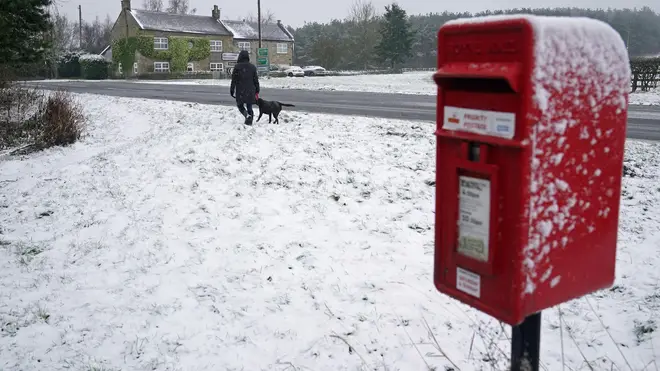
Simon Marks 3pm - 7pm
28 December 2021, 15:35

New Year's Eve could be the warmest on record in the UK, however freezing temperatures are set to return in early January.
The mercury is set to return to average in January following a mild late December, forecasters have said.
Temperatures are set to reach 15C in some parts of the country on December 31.
READ MORE: White Christmas on the cards as Met Office says chance of snowfall in UK
Met Office meteorologist Greg Dewhurst said: "The record is 14.8C on New Year's Eve and that was in 2011. Temperatures look like they'll be 14-15C so it is possible that temperatures could be that value."
Mr Dewhurst said the weather throughout the week will be "on the mild side", adding: "We're going to see across the whole of the country, through the rest of this week, temperatures that are above average for this time of year.
"The average temperature in the UK around this time of year should be around 7-8C.
"Going forward, we're looking at highs of around 12-14C, possibly locally 15C in one or two spots, so it's going to be well above average."
READ MORE: 'Lifeline' for hospitality sector as PM confirms no new Covid restrictions before new year
Wondering where #winter has gone?
— Met Office (@metoffice) December 27, 2021
Much of western Europe will become exceptionally #mild for the time of year later this week 📈
Unseasonably high #temperatures will also affect the UK where records are likely to be challenged ⚠️ 📈 pic.twitter.com/wj76YwyDLe
However, meteorologist Craig Snell said the mercury is then set to plunge.
Normally the UK sees average daytime temperatures of 7-8C in the South and 3-4C in the North in January, he said, with night-time temperatures of 2-3C in the South and 0C in the North.
"(After New Year's Eve) there is a trend for temperatures to return nearer to normal", he said.
"That's not surprising as temperatures are way above average."
He added that northern England and Scotland could even see frost in the new year.
It comes after parts of Yorkshire and Scotland had a white Christmas after unexpected snowfall.
Mr Snell added: "For this time of year, if we see any clearer slots at night then that does give some risk for frost, particularly across the northern half of the UK."